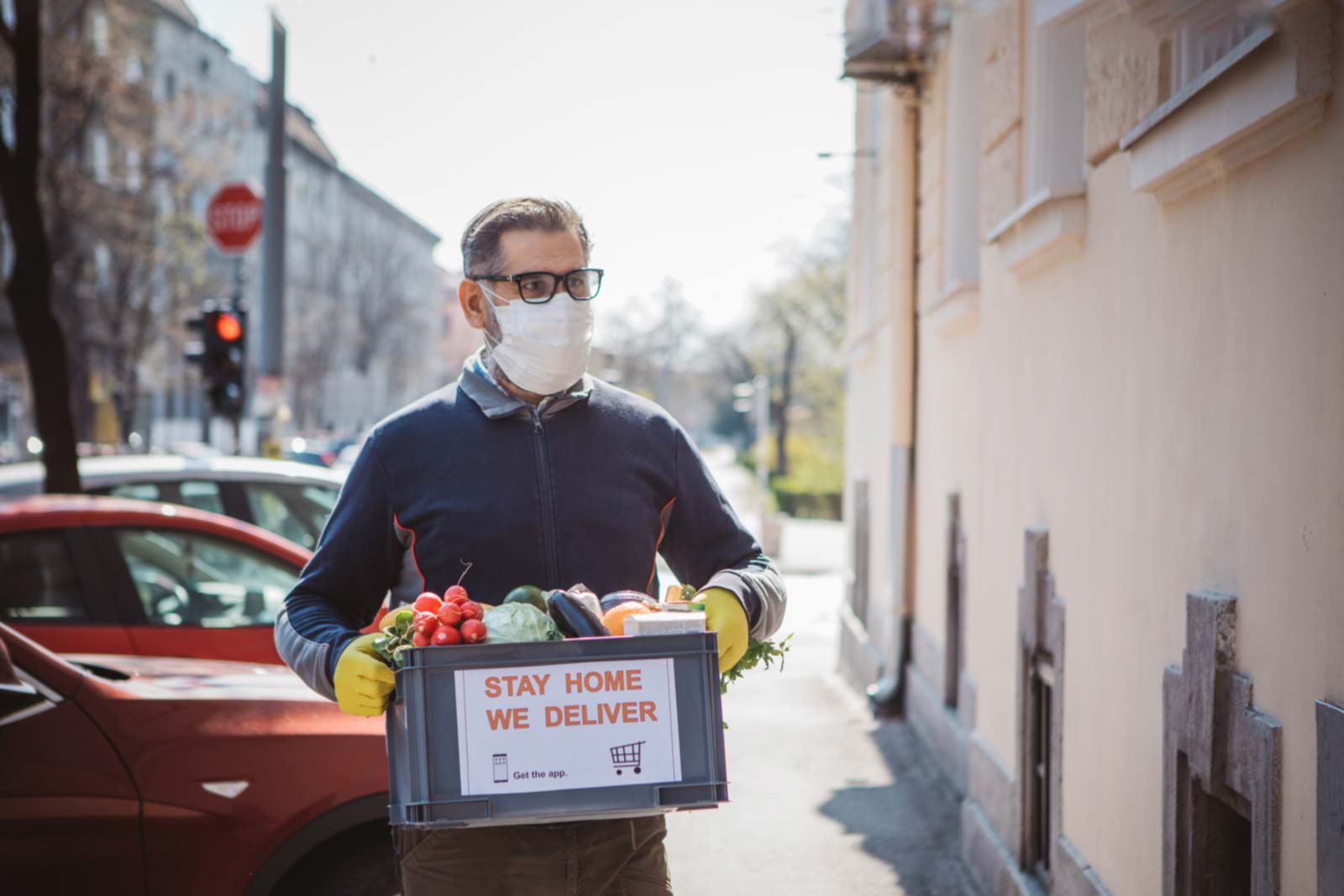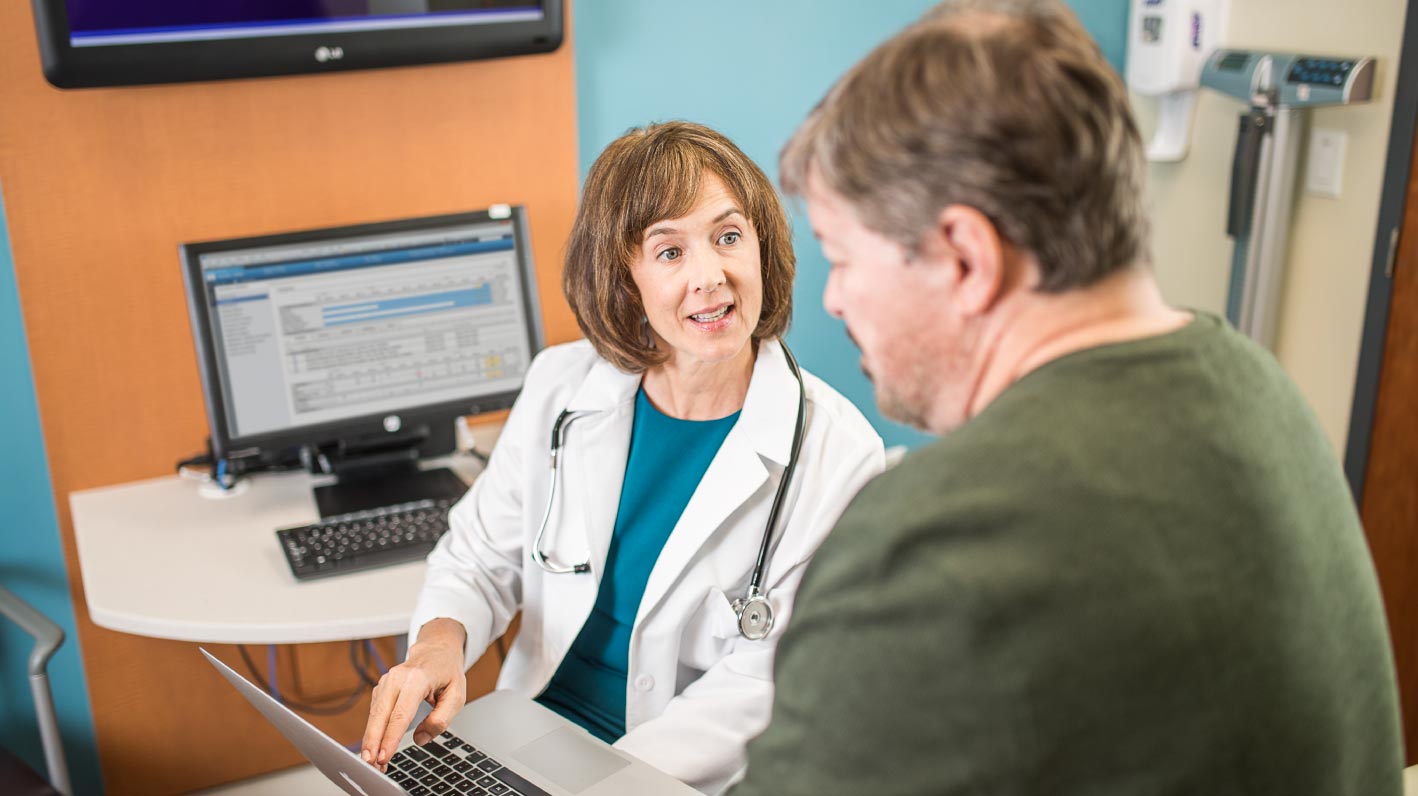Response
Anticipate operational, supply and staff resources to successfully handle COVID-19 surge
Predictive Models
Understand how data-driven health care can help you improve outcomes and evolve post-COVID
Client Collaboration
Collaborate with other providers during ongoing phases; share successes and best practices (Login Required)
Cerner COVID-19 Media

How is Cerner as a company responding to this outbreak?
Cerner’s COVID-19 Taskforce, dedicated to making clinical and business continuity decisions globally, has been working around the clock to help support a healthy, safe workplace for its associates and clients. All decisions and policies governing Cerner’s management of the COVID-19 event are being led by the Taskforce which includes Cerner Chief Medical Officer Dr. David Nill and Senior Vice President and Chief Clinical and Patient Safety Officer Eva Karp, DHA and other leadership, in accordance with guidance from the WHO, CDC and other global and regional health organizations.
What update or updates has Cerner made available for Millennium clients?
Many Cerner clients are at the forefront of this global pandemic and being pushed to unprecedented limits. Cerner’s electronic health record technology is here to help health systems effectively screen and monitor patient populations for potential cases of viruses. Cerner teams have developed and pushed an update to Millennium clients to help actively manage the ongoing threat of the virus.
The updated package for the Infectious Disease Travel Screen PowerForm within Millennium alerts providers when a patient is at risk so clinicians can take appropriate isolation precautions.
How does an organization access and make updates to Millennium?
Cerner will continue to issue Flash communications to alert clients when the updates are ready.
Visit uCern to learn more about changes that can be made to the PowerForm, rules and HTML files for the update, HERE.
Cerner client contacts are available and ready to support.
What is available for Soarian clients?
Soarian Clinicals supports health system clients’ efforts to effectively screen and monitor patient populations for the virus with Provider Documentation and Inpatient Nursing Assessment model communicable disease screening questions as well as alerts and patient level icons. Additional information can be found HERE.
Soarian Financials captures Infectious Condition Information via patient intake workflows using Patient Notifications. This is also available with Appointment Management workflows that are shared between Soarian Financials and Soarian Scheduling. Please refer to Soarian Financials Patient Access Guide for more information HERE.
Soarian Scheduling supports configuring and asking additional screening questions via notes and questionnaire processing. In addition, clients without Soarian Financials can utilize patient alerts to notify users of their infectious condition. Please refer to Soarian Scheduling Application and Administration Online Help within the application or download HERE.
How is Cerner enhancing telehealth solutions to offer care direct to a person in their home?
Cerner is empowering clients to utilize telehealth to help improve access to the right care from the home to mitigate the impact and spread of the virus. Cerner is collaborating with Amwell Medical Group (AMG) to offer the COVID-19 Response Module. This module is designed to equip clients with a ready-to-use solution and includes access to a preconfigured Practice on Amwell, staffed with providers of AMG.
Access engagement materials to drive patient adoption, as well as reporting on enrollments and utilization HERE.
How is Cerner supporting its associates during this time?
All Cerner associates have been educated on best practices to help prevent transmission, and Cerner is continually monitoring the WHO, CDC and other government recommendations worldwide for travel guidelines. We anticipate further updates to travel guidance as the situation evolves. Below you will find additional, more specific information on our updated travel policies.
Medical costs - Cerner is covering testing for COVID-19, when indicated, at no cost to associates in most locations. It is Cerner’s goal and intention to cover this testing for all associates who may need it.
Pandemic Time Off - In order to protect the financial health of associates who are unable to perform their work because of the pandemic due to a quarantine, department or office closure, Cerner has instituted an emergency Pandemic Time Off policy.
Enhanced Cleaning - Cerner is committed to promoting a healthy and safe workplace and has put cleaning protocols in place to pay additional attention to common spaces and workspaces. Should the situation require it, Cerner has a protocol in place to thoroughly disinfect spaces. Cleaning procedures will continue to be modified per guidance from the WHO and CDC.
Virtual Interactions - Currently, associates are encouraged to use virtual meetings instead of in-person meetings, when possible. Cerner is strongly recommending social distancing, including limiting in-person meetings to 10 people or fewer, restricting visitors to Cerner campuses and canceling, delaying or virtually planning events through April.
Additional information on associate support is outlined below.
How is Cerner adapting its travel policy?
The health of Cerner associates and clients is a top priority. Cerner has temporarily halted all international travel. For all travel within a country, Cerner continues to follow guidance from the WHO, CDC and other global and regional health organizations. Cerner has limited Cerner travel to critical travel only. As a health care technology company, Cerner’s work to support health systems across the globe must continue. The company is working continuously to evaluate the best decisions for associates and clients and making decisions accordingly.
In addition to halting international travel and restricting domestic travel to critical travel only, associates are expected to follow the below guidance to help contain and delay the spread of the virus and help maintain the health of our communities:
- Follow country, state or local guidance and public health orders. Cerner’s guidance is based on recommendations from the WHO and CDC, as well as government organizations worldwide. Some regions may have public health orders in place that go beyond this guidance. Associates should follow the most restrictive guidelines given by an official health department.
- Follow home-quarantine protocols for work and personal travel. Associates who have recently traveled internationally or been on a cruise, or in contact with someone who has, are required to follow a 14-day home quarantine.
If Cerner associates are expected to visit a client site, will they still travel?
As a health care technology company, Cerner’s work to support health systems across the globe must continue. Cerner is working continuously to evaluate the best decisions for associates and clients.
Following updated travel guidance from the WHO, CDC and other global and regional health organizations, Cerner travel has been limited to critical travel only. International travel is temporarily halted. Critical domestic travel will continue if requested by a client.
If an associate is unable to travel and attend a meeting in-person, Cerner will help make the appropriate plans that are most convenient for the client, whether it’s rescheduling or conducting the meeting virtually.
What is Cerner doing to prevent infection at client sites if associates travel to them?
Cerner is requiring any associate who has traveled internationally or been on a cruise (or has had close contact with someone who has) to self-quarantine for 14 days from their date of possible exposure to reduce risk. If an associate has traveled to a site or location where it was later revealed they were exposed to a person who tested positive for the virus, those associates are asked to self-quarantine for 14 days. Cerner is also recommending that associates limit time in the emergency department and other clinical care settings and stay in office settings.
Cerner associates are asked to follow below guidelines for safety when visiting client sites including:
- Avoiding touching their mouth, nose, or eyes;
- Washing hands frequently with soap and water for at least 20 seconds. Use hand sanitizer if they are unable to immediately wash their hands; and
- Using sanitizing wipes to clean the airplane seats, tray tables, or other surfaces in airports, especially eating surfaces.
Has Cerner made the decision to have associates work from home?
Yes. To help reduce the potential exposure and transmission of COVID-19 in communities globally, and based on updated guidance and data, all Cerner associates who can work remotely must do so through the end of 2020. The Cerner COVID-19 Taskforce will reassess continually and may extend based on the situation. As a global company, Cerner will likely determine return dates regionally, reflecting input from local governments, health organizations and local leadership.
Some offices will remain open for associates whose work requires being physically present, and Cerner is implementing social distancing strategies to help reduce the risk of exposure. Protecting associates’ health and continuing to meet client commitments are Cerner’s top priorities.
Cerner’s clients are in the business of health care and, as partners, Cerner’s clients are requesting the company’s help. Cerner is prepared to continue to provide support and service to clients during this time.
Does Cerner have a plan in place to ensure redundancy and resiliency if a large number of Cerner associates work from home and/or client site associates work from home?
Cerner has business continuity plans in place and has transitioned to worldwide associate remote work smoothly.
If an associate is ill and unable to work, accommodations will be made to cover work in their absence, including a point of contact familiar with the client organization.
Does Cerner plan to cancel any Cerner-sponsored or hosted events?
Cerner continues to follow recommendations from the WHO, CDC and other global and regional health organizations, including their travel guidelines. With newly announced guidance, Cerner now restricts associates from attending business events with 10 or more people.
Leadership has reviewed all planned external events through the end of June and are changing events to virtual delivery when possible. In other cases, Cerner is postponing, or when necessary, canceling the event. In addition to protecting associate health, it’s important that Cerner helps protect the health of clients, patients and communities.
What is Cerner doing to promote security and stability at this time?
In advance of the COVID-19 outbreak, Cerner implemented industry standard security protections which aligned with the latest Department of Homeland Security – National Cyber Awareness System Alert (AA20-073A), Enterprise VPN Security. These measures include multi-factor authentication on VPN solutions, increased security patch frequency and improved reporting to Cerner’s 24x7 Computer Security Incident Response Center (CSIRC). As Cerner shifted to remote workforce conditions, a new VPN was launched and tested within 72 hours, ensuring network stability for all associates.
Cerner CSIRC remains vigilant in the current threat climate, and Cerner receives up to date threat Indicators of Compromise (IOC) from federal agencies to ensure Cerner and our client hosting systems are protected.
Is Cerner allowing its clinical associates to volunteer to help on the frontlines?
Yes, Cerner has implemented a policy that will continue the salary of any clinically licensed associate who is called to, or volunteers to, respond to the COVID-19 crisis.
What is Cerner’s Business Continuity Plan during the pandemic?
Cerner’s Pandemic Response follows our overall Business Resilience planning. The framework is primarily based on ISO 22301 and leverages guidelines from the Disaster Recovery Institute International (DRII), Federal Continuity Directive 1 and Federal Emergency Management Agency (FEMA). Associates are following the mitigation strategies established by the World Health Organization (WHO), U.S. Centers for Disease Control and Prevention (CDC), and other global public health organizations, with most associates moving to remote work and all but critical travel stopped. We are taking extra precautions with our business-critical facilities and onsite support staff.








